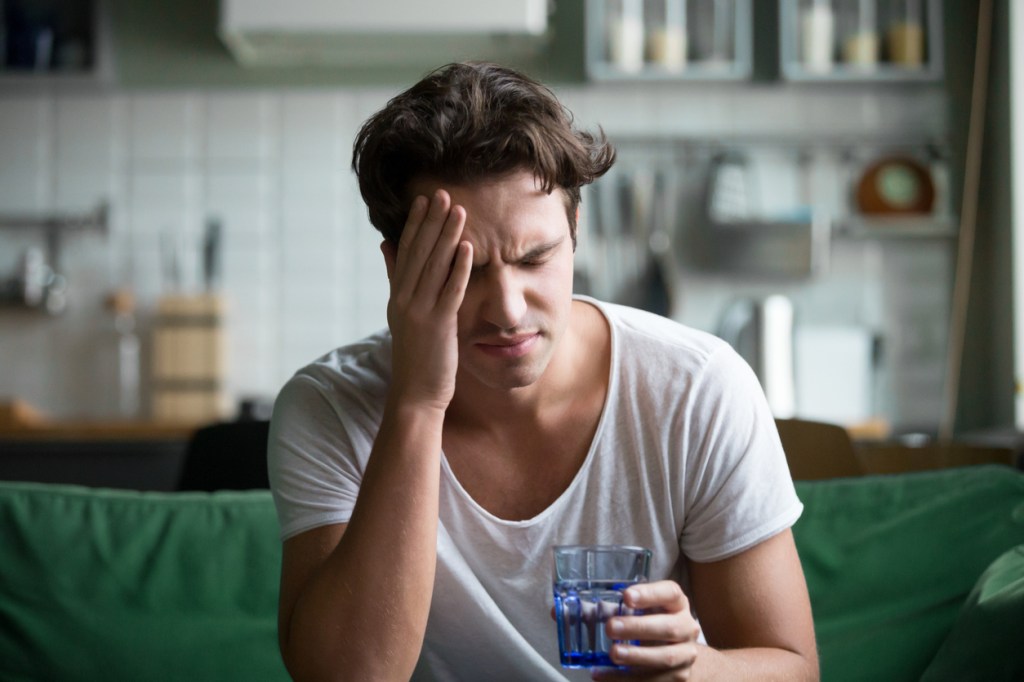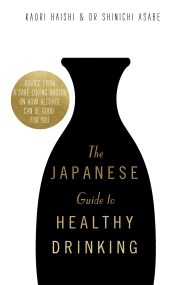How to avoid a rough hangover

The festive season is notorious for excessive alcohol consumption, very often followed by a splitting headache and the promise that ‘I am never drinking again’. Until, of course, the next time. January often brings the extreme solution of going teetotal – many will take part in Dry January – but if the notion of cutting out alcohol completely does not appeal to you, this article presents a way to enjoy alcohol in a sensible manner without the pain and grogginess of the following morning.
A hangover is a state of ill health caused by alcohol or alcoholic metabolites, left in the body from the previous day’s drinking. The symptoms can vary from headaches to nausea. The best way to avoid a hangover is simply not to drink too much. Many of us understand that, but once we’re intoxicated, we can forget our self-control. We desperately want to avoid a rough hangover, so let us proceed with preventative measures.
‘The basic cause of hangovers,’ says Shinichi Asabe, a liver specialist at the Jichi Medical University Saitama Medical Center, ‘is consuming alcohol in excess of your body’s capacity to process it. To avoid that, you need to know what your personal limit for a moderate amount is.’
Mixing drinks risks losing sight of the amount of alcohol you have consumed
‘It’s especially dangerous to mix different types of alcohol,’ he continues. ‘It’s because if you drink many different drinks, each with varying percentages of alcohol, you can risk losing sight of the total amount you have drunk.
‘For example, you might start with a beer, and entering into the spirit of the party, move on to saké, and close with whisky on the rocks or an authentic shōchū. In this admittedly extreme scenario, you have already consumed a considerable amount of alcohol by the time you’ve got to the saké. Then you’re on to whisky, which has more than 40 per cent alcohol content by volume (ABV). There’s no way that your liver’s alcohol-processing capacity is going to keep up with that, even though people’s individual capacities can vary widely. There used to be a custom, which has now become a little outmoded, of making people at welcome parties chug a drink down in one go, and that’s out of the question.
‘When you down a drink in one go, you risk drinking enough to overload your alcohol processing capacity in a short period of time. The liver is unable to maintain its alcohol processing function, which leads to an accumulation of alcohol and aldehyde – a substance created in the process of metabolising alcohol. As a result, in the worst-case scenario, you could fall into a coma or even die.’
If you’re in that situation, you are way over the threshold for a mere hangover. So how long does it take for the liver to process alcohol?
In order to come up with a number, we need to know the pure alcohol content. This is the amount of ethanol contained in the drink, which you can work out with this equation.
Alcohol content ÷ 100
× amount drunk in ml
× 0.8 (the specific gravity of ethanol)
Meanwhile, the amount of pure alcohol that a liver can process is roughly:
Bodyweight × 0.1
This is because the size of your liver is believed to be in proportion to your body weight. So if we have a person who weighs 100kg, the amount of pure alcohol they can process in an hour is 10g. Converted into alcoholic drinks, that is half of the average 500ml bottle of beer or a single shot of whisky, which is not much. For this reason, the first step for self-care is becoming aware of what the appropriate amount of drink is for yourself.
Formula to calculate the pure alcohol amount
ABV ÷
100 × the amount you have drunk (ml)
× 0.8 (the specific gravity of ethanol)
= Pure Alcohol Amount (amount of ethanol)
If you have consumed multiple types of drinks, you should add each of them to find the approximate value.
Put something in your stomach before drinking
‘If you drink on an empty stomach,’ says Dr Asabe, ‘the alcohol will be quickly absorbed by your digestive organs, which increases the risk of a hangover. To prevent this, it’s best if you eat something beforehand. If there is even a small amount of food in your stomach, the speed of alcohol absorption will be reduced, and that can prevent a hangover.’
According to Dr Asabe, the best type of food to eat beforehand is cheese. The protein and fat contained in cheese make it hard to absorb, so it lingers in the stomach, making alcohol absorption more gradual.
‘Having solid food in your stomach gives you a sense of fullness,’ he adds, ‘which can encourage a slower drinking pace.’
Protein-rich food can protect the stomach
As we have seen, we should take care choosing the snacks we nibble on while we drink. You might tend to choose what’s in season, or what the bar or restaurant recommends, but get into the habit of choosing instead on the basis of which components can help you ease a potential hangover. According to Dr Asabe, the elements you should actively consume are: protein, vitamin B1 and dietary fibre.
Protein
Once inside your body, protein will be broken down into amino acids and absorbed in the small intestine, which then carries it to the liver. Amino acids have the property of improving liver functions, which include detoxification and accelerating the metabolising of alcohol. You can consume animal-based protein, such as pork, beef or chicken, but if you are also watching your weight and counting the calories, you should choose a plant-based protein such as soybeans. Dr Asabe particularly recommends nattō – Japanese fermented beans.
‘Nattō is protein-rich,’ he says, ‘but in addition, its uniquely sticky, slimy composition helps protect the gastric mucosa. It lessens the discomfort you might feel in your stomach the day after a drinking session.’
Vitamin B1
The second component on the list is vital in preventing alcohol and carbohydrates remaining in the body: the vitamin B group, and especially the crucial vitamin B1.
‘When alcohol is broken down in the body,’ he says, ‘it’s vitamin B1 that is consumed in large amounts. Vitamin B1 is an indispensable nutrient that helps metabolise carbohydrates and create energy. If your vitamin B1 levels drop because of a high intake of alcohol, you end up with a greater sense of fatigue the following day. It’s a nutrient that you want to consciously ingest, not only during a drinking session, but also afterwards.’
Foods rich in vitamin B1 include pork, eel and cod roe. To help its absorption, the most effective combination is thought to be eating them with allicin, the main compound that creates the aroma and bitterness of garlic and onions.
Dietary fibre
And we mustn’t forget dietary fibre. ‘Dietary fibre reaches the colon without getting absorbed,’ says Dr Asabe. ‘Just like cheese, it stays within the digestive system for a long time, slowing down alcohol absorption.’ To get a suitable hit of dietary fibre, it can be helpful to eat a small bowl of salad or boiled vegetables in a dashi sauce, before touching your first drink.
A lot of traditional Japanese ‘taste of home’ nibbles are rich in dietary fibre, such as kinpira – carrot and burdock or dried mouli and carrot in a sweet and savoury sauce. Actively seek out such a simple dish.
Hydrate often while drinking
In addition, Dr Asabe suggests we should drink water all through the session.
‘Drinking water dilutes the alcohol concentration within the digestive organs,’ he explains. ‘We tend to get dehydrated after alcohol ingestion, because of its diuretic effects. So, in order to prevent that, it is best to start drinking water while enjoying the alcoholic drinks.’
As a case in point, the Japan Saké and Shōchū Makers Association (JSS) recommends drinking water between each sip of saké. It says that ideally you should drink as much water as you do alcohol. There’s always some drunkard who brags that he’ll ‘drink beer as a chaser’, but alcohol on top of alcohol will only accelerate dehydration.
We’ve explored a number of hangover prevention methods so far, but none of them amount to a hangover prevention guarantee.
Says Dr Asabe: ‘The way to prevent a hangover is to keep eating balanced snacks that are rich in protein, fat, dietary fibre and vitamin B1. You should start drinking slowly, and drink in accordance with your assessment of your condition on that particular day.
‘Drinking with food is a basic set-up, but many of us put our chopsticks down for good once the drinking begins. Alcohol is not for drinking, but for tasting, along with delicious food. If you keep that in mind, it should considerably reduce the risk of hangover.’
'People in Japan take their drink seriously. But alcohol is seriously bad for you. This book will tell you how to hold your drink - without dying from the consequences'
HENRY GEE, Senior Editor, Nature, and author of The Accidental Species: Misunderstandings of Human Evolution
'Drinking can be one of life's great pleasures, but it can also be very harmful and dangerous. Here is a sensible, science-driven, and thought-provoking look at both the pluses and minuses of alcohol as well as tips on how to hopefully enjoy your favourite tipple in a safer way. Kanpai!'
BRIAN ASHCRAFT, author of The Japanese Saké Bible and Japanese Whisky
'A refreshingly honest look at booze and how to get the best out of it. I can definitely drink to that.'
HELEN McGINN, author of The Knackered Mother's Wine Club
ALCOHOL CAN BE GOOD FOR YOU!
In this uniquely Japanese mix of quirky fun and hard science, alcohol is revealed not as a poison, but as the best of all medicines . . . up to a point. If we drink healthily, drinkers need never give up what we love.
Kaori Haishi is a journalist and the director of the Japan Saké Association; Dr Shinichi Asabe is a liver specialist who likes a drink. Kaori Haishi interviewed a line-up of twenty-five booze-loving physicians, including Japan's leading expert on throwing up, a sleep specialist on how nightcaps can cause depression and a professor on how drinking too much beer can prevent the secretion of testosterone. Now, with Dr Asabe's expert medical help, she has written this book.
Universally relevant information about the effects of wines, beers and spirits on the human body is delivered with clarity and precision, backed up by plentiful footnotes citing the latest academic research. The unfailingly amusing Haishi has particularly empathetic advice for women, including the merits of saké as a miracle skin-care product. The book explores all sorts of issues, such as:
Bitter Medicine - how beer can help to prevent dementia.
Shakes on a Plane - is in-flight drinking dangerous?
Mellow Yellow - checking the colour of your pee.
Snack Attacks - secrets for avoiding weight gain.
And that perennial mystery . . . how do the French get away with it?



